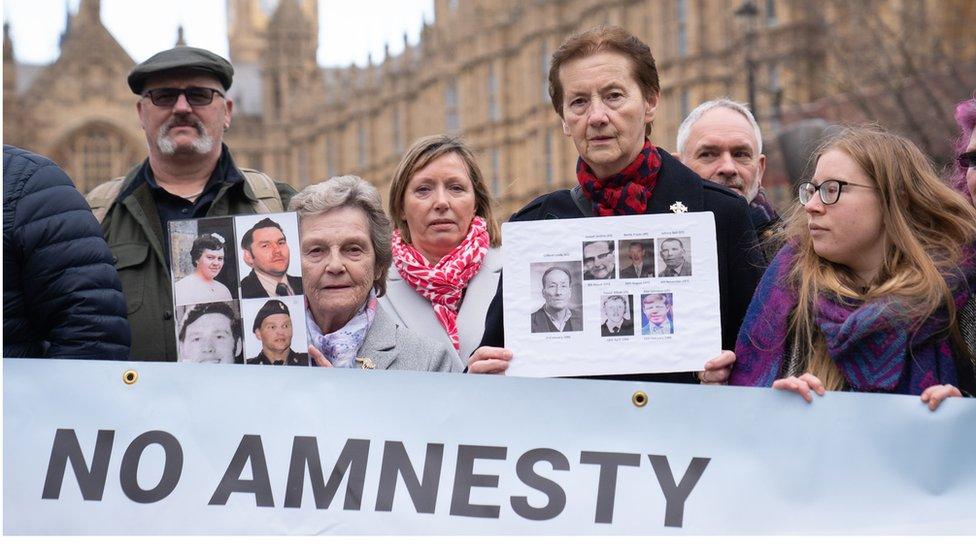Troubles legacy act: Ireland takes human rights case against UK
- Published
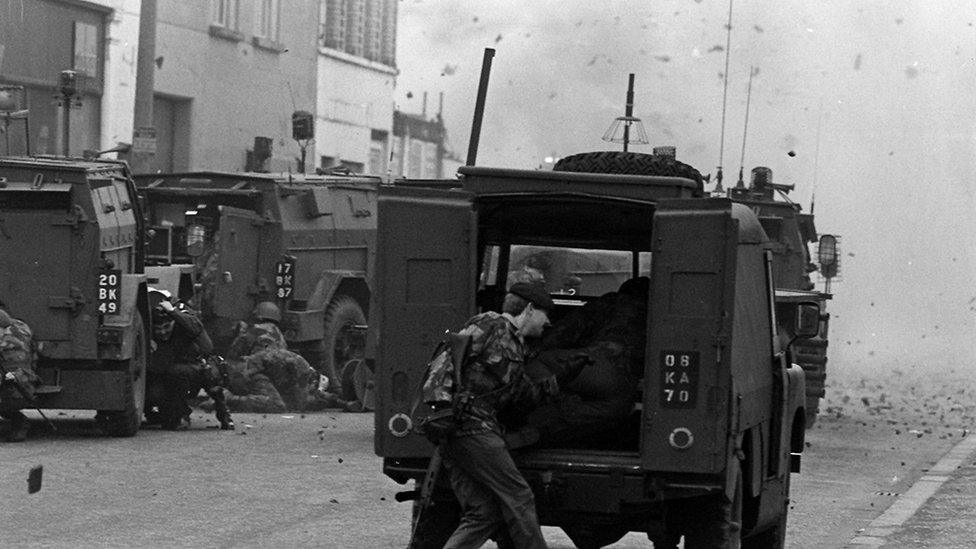
The Irish government is to begin a legal challenge against the UK government over its decision to offer immunity for Troubles-era crimes.
The UK's controversial Troubles legacy act became law in September, despite opposition from Dublin and all Northern Ireland's main political parties.
Critics argued the law gave an amnesty and removed access to justice.
Northern Ireland Secretary Chris Heaton-Harris said he "profoundly regrets" the Irish decision.
"It did not need to be taken now, given the issues are already before the UK courts," he said.
In a statement on Wednesday evening, he added the Irish government's action was "inconsistent and hard to reconcile with its own record" on dealing with legacy matters.
'Serious reservations'
Victims and survivors have already taken action against the UK government at Belfast's High Court, opposing the bill which Boris Johnson, then-prime minister, said in 2021 was to "draw a line under the Troubles".
The 30-year conflict cost more than 3,500 lives and left thousands more seriously injured.
The legislation also brought an end to all new inquests and civil actions related to the conflict.
Ireland's case is being taken under the European Convention on Human Rights.
Outlining the decision, Tánaiste (Irish Deputy PM) Micheál Martin said the UK government had "pursued legislation unilaterally" despite the concerns of the Irish government and others.
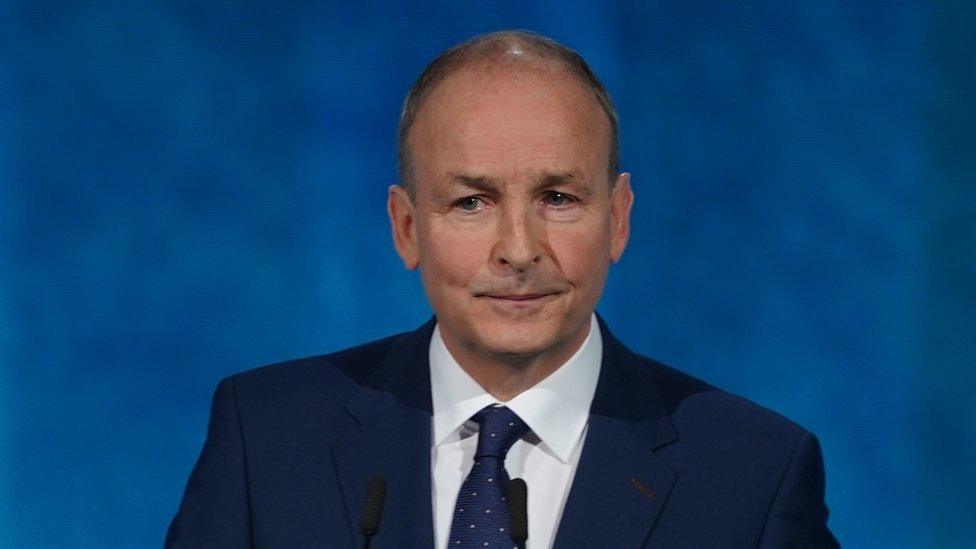
Tánaiste (Irish Deputy PM) Micheál Martin said his government's decision was taken after careful consideration
"Serious reservations about this legislation have also been raised by a number of international observers, including the Council of Europe's Commissioner for Human Rights and the UN High Commissioner for Human Rights," Mr Martin added.
"Most importantly, this legislation is opposed by people in Northern Ireland, especially the victims and families who will be most directly impacted by this Act."


The Irish government has opposed the UK's new legacy law right from its conception.
Victims' groups had lobbied it repeatedly to take a case in Europe.
It now means the Troubles Act is being challenged on two legal fronts.
Bereaved relatives have gone to court in Belfast and Dublin is acting in Strasbourg.
A decision by the Irish government had been on the cards, but this is a big step which will not have been taken without evaluating political implications.

Some victims' families have backed the Irish government's legal challenge; including Emmett McConomy, whose 11-year-old brother Stephen was killed by a soldier in 1982 in Londonderry.
Mr McConomy told BBC Radio Foyle's North West Today programme the challenge was "proper order".
"It gives us some hope today, we have never lost hope and I think like all victims out there, the only thing we actually have is hope".
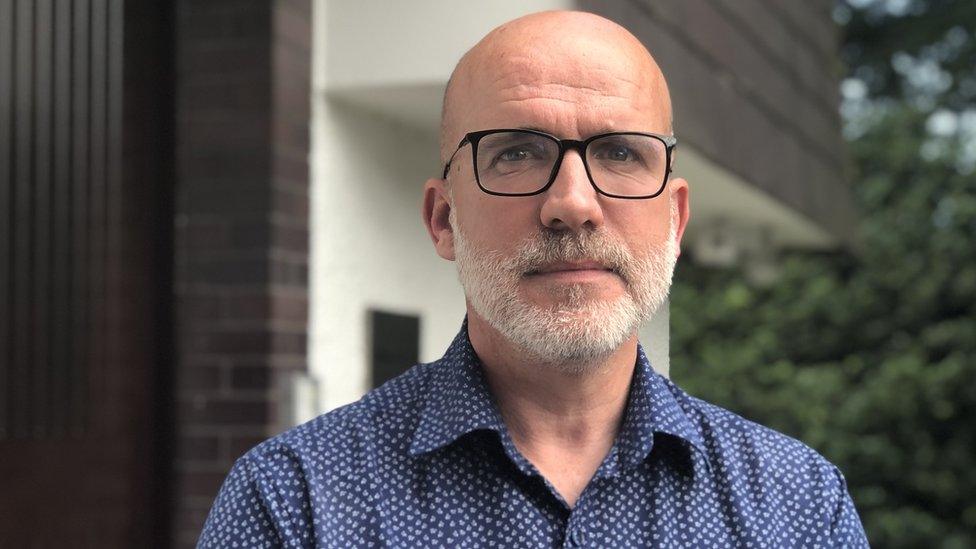
Emmett McConomy says the legal challenge is 'proper order'
Mr McConomy said victims and survivors want "truth and accountability, justice and our rights upheld".
He added: "I don't think that's too much to ask in a civilised society."
'Only show in town'
In September, the Northern Ireland secretary said the bill marked a "significant milestone as the government aims to deliver on our pledge to deliver better outcomes for those most affected by the Troubles, while helping society to look forward".
He added it offers "a real opportunity to deliver greater information, accountability and acknowledgement to victims and families, moving away from established mechanisms that have left far too many empty-handed".
On Wednesday, Chris Heaton-Harris said of the Irish government's legal action: "While this step is disappointing, it is one for which the UK Government was prepared."
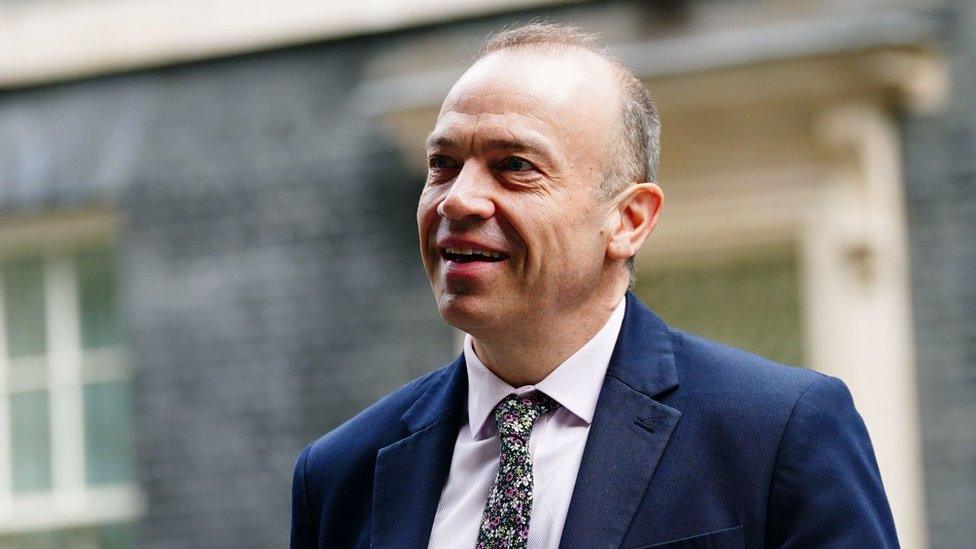
NI Secretary Chris Heaton-Harris defended the government's legacy bill
"The UK Government remains confident that the Act provides a robust and effective framework to allow the ICRIR (Independent Commission for Reconciliation and Information Recovery) to discharge our legal obligations."
Northern Ireland Office minister Lord Caine added the bill was "the only show in town" and the UK will "try and minimise" any consequences for relations between the two governments.
"But if you're asking me this evening can I rule out any consequences, the answer is no," he told BBC News NI's Good Morning Ulster in an interview to be broadcast on Thursday.
The ICRIR was set up in an attempt to help families find out more about the circumstances of how their loved ones were killed or seriously injured.
Self-confessed perpetrators who provide a truthful account of their actions to the ICRIR can be granted immunity from prosecution.
'Necessary decision'
Victims' campaigner Raymond McCord, whose son Raymond was murdered by loyalist paramilitaries in 1997, said: "Anyone in Northern Ireland who condemns or criticises the Irish government over their action is no friend of victims".
Amnesty International said the Irish government was "doing the right thing" for victims of the Troubles by taking the case.
The human rights organisation the Committee on the Administration of Justice (CAJ) said it was "the right decision and a necessary one".
The Democratic Unionist Party leader Sir Jeffrey Donaldson accused the Irish government of double standards.
"The Irish government have no proposals to deal with the legacy issues, no proposals to deal with the quite significant number of murders that were committed either in their jurisdiction or from their jurisdiction," he continued.
Sinn Féin leader Mary Lou McDonald also welcomed the Irish government's move, as did Social Democratic and Labour Party leader Colum Eastwood.
Ulster Unionist Party leader Doug Beattie said the Irish government's decision was "not surprising" and it takes an "opposition attack line off the table" ahead of an election year.
Related topics
- Published30 November 2023
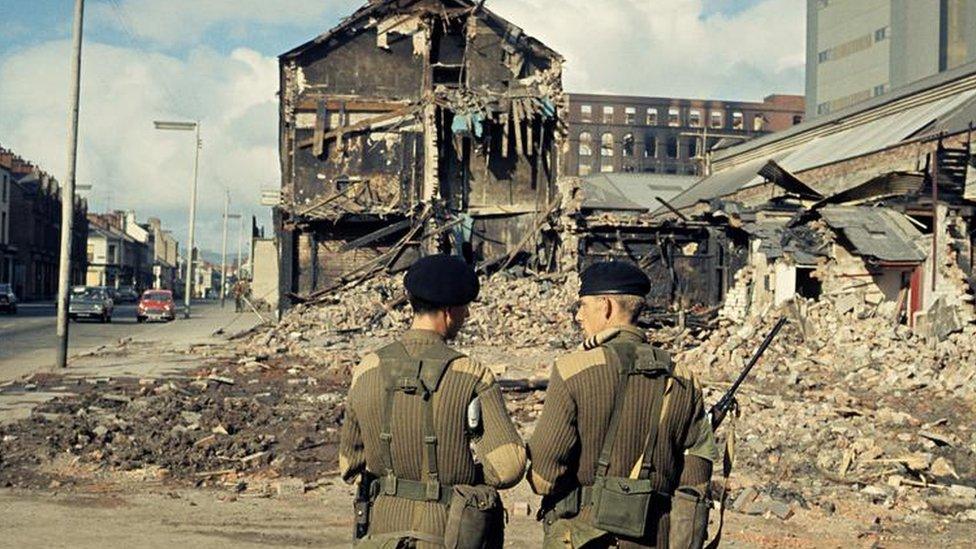
- Published21 November 2023
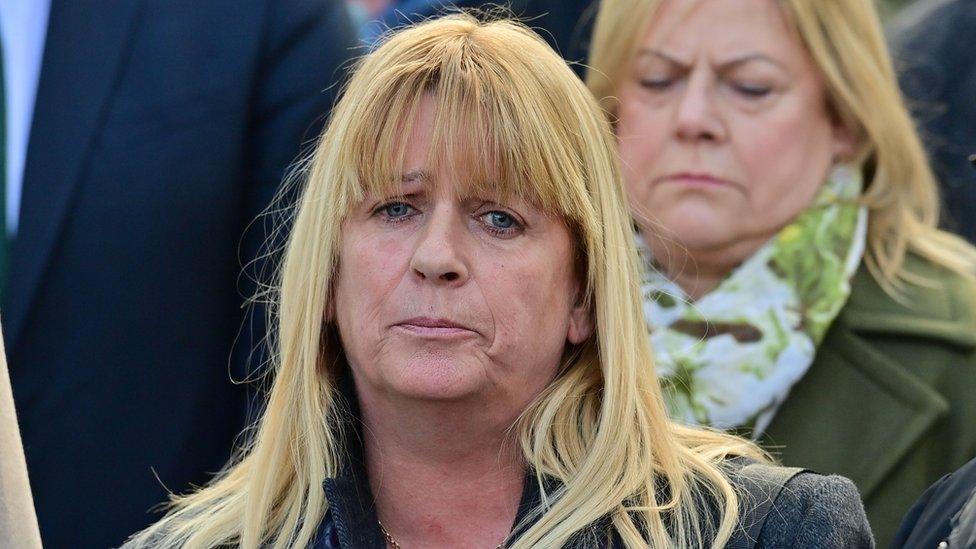
- Published28 September 2023
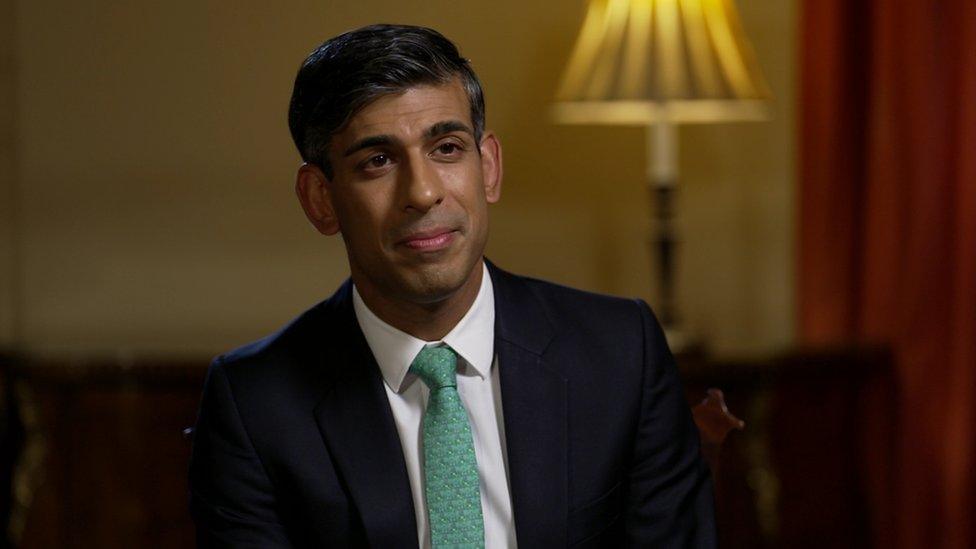
- Published18 September 2023

- Published19 September 2023

- Published5 September 2023
